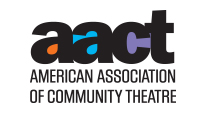ASCAP
 A Benefit of AACT Organizational Membership, ASCAP’s Community Theatre license covers the AACT Member Theatre for the AACT membership year at all its venues for copyrighted pre-show, intermission, and post-show music played by means other than live performers. (The Community Theatre license does not cover recorded music during a play or music performed live, such as in a musical revue or a jazz combo performing during a gala reception.)
A Benefit of AACT Organizational Membership, ASCAP’s Community Theatre license covers the AACT Member Theatre for the AACT membership year at all its venues for copyrighted pre-show, intermission, and post-show music played by means other than live performers. (The Community Theatre license does not cover recorded music during a play or music performed live, such as in a musical revue or a jazz combo performing during a gala reception.)
>> See also BMI's Community Theatre License for AACT Members. Members get an additional 5% off when they purchase both.
|
Applications accepted May through September of each year The Community Theatre license year is September 1-August 31. AACT-member theatres that sign up through the AACT office receive a 30% discount on the ASCAP license fee. Both membership and ASCAP fees must be received in the AACT office by October 30, along with a signed ASCAP license form (below). ASCAP Q&A's (PDF) | 2024-25 Rate Schedule (PDF) | 2024-25 License Form (PDF) | ASCAP Website |
| 2024-2025 Rate Schedule License Year: September 1- August 31. Both membership and BMI fees must be received in the AACT office between June 1 and October 30. Discounts will apply only to qualified AACT Member Organizations |
||
| Theatre Operating Budget | ASCAP Non-Member Rates | ASCAP AACT-Member Rates |
| $0-$24,999 | $229.20 | $160.44 |
| $25,000 - $499,999 | $299.50 | $209.65 |
| $500,000 and above | $436.00 | $305.21 |
Why Do We Need to License?
Perhaps you are wondering, "Why do we need permission to play music?” or, "What is ASCAP?” The answers are straightforward. You wouldn’t perform a copyrighted play without getting a license and paying royalties to the author, usually through a royalty house or agent. The same applies to copyrighted music. The copyright law requires users to receive permission to perform copyrighted music publicly. This law applies even if you are playing a recording like a CD or tape, rather than performing the music live. Remember, a composer’s payment for their creative work is usually through royalties. While a small fraction of the amount you paid to purchase the CD or tape was for royalties to the songwriter or composer (almost all of the amount you paid goes to the record company and performer), that was for private listening – you and a few friends – not for public presentation. Composers and songwriters rely on public performance royalties to earn a living. ASCAP makes that happen.
About ASCAP
ASCAP (American Society of Composers, Authors and Publishers) is the oldest, largest, and foremost organization in the United States that licenses the right to publicly perform copyrighted musical compositions. ASCAP makes it easy to use music legally, because (1) it is a membership organization representing more than 400,000 songwriter, composer, lyricist, and music publisher members, (2) provides an annual license at a reasonable flat fee, and (3) doesn’t require you to submit a list of songs to be played. In addition, the vast ASCAP repertory to which licensees have unlimited access – millions and millions of works – is listed on the ASCAP website (ascap.com) so it is easy to determine if ASCAP handles a particular song.
ASCAP The American Society of Composers, Authors, and Publishers
ascap.com




